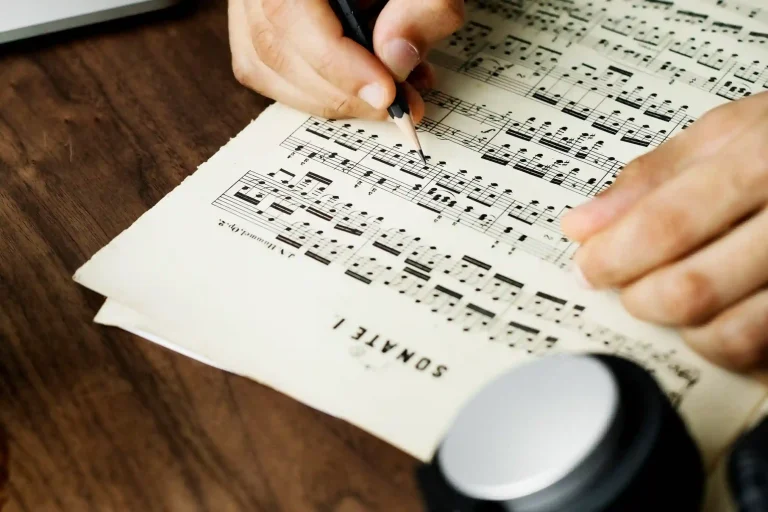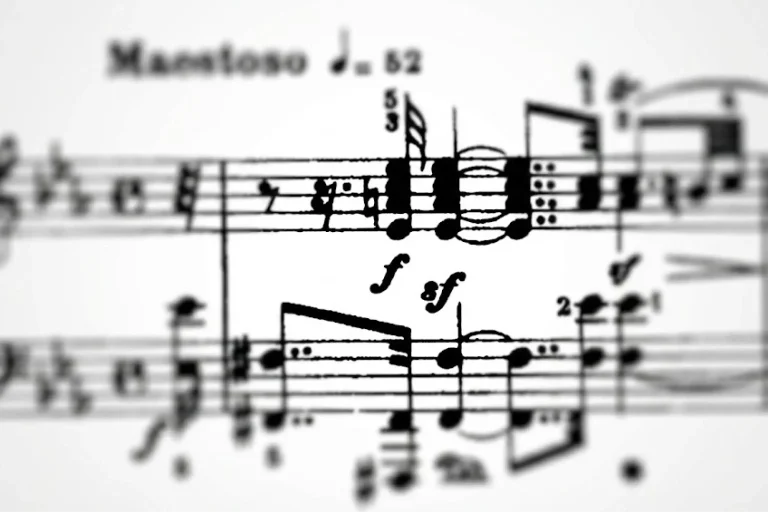All Topics
- Alchemizing Music Concepts for Students
- Artist Spotlight
- artium gift card
- Artium Maestros
- Artium News
- buying guide
- Carnatic Music
- Devotional Music
- Editorials by Ananth Vaidyanathan
- Film Music
- Guitar
- Hindustani Classical Music
- Indian Classical Music
- Indian Folk Music
- Insights
- Instruments
- Karaoke Singing
- Keyboard
- Kids Music
- maestros
- Music Education
- Music for Kids
- Music Industry
- Music Instruments
- Music Legends
- Music Theory
- Music Therapy
- Piano
- piano guide
- Success Stories
- Tamil Film Music
- Telugu Film Music
- Time Theory
- Tools
- Uncategorized
- Vocal Singing
- Vocals
- western classical music
- western music
- Western vocal music
Classical Piano Lessons: A Step-by-Step Guide
Classical Piano Lessons: A Step-by-Step Guide

Table of Contents
Enrolling in online piano classes can open a lot of doors. However, even if you learn to play the modern piano, the world of classical music is still waiting for you to explore. Learning classical pianos can be even more beautiful and intricate than the modern onesone and can take you on the journey of thousands of great musicians. If you want to refine your skills further or want to cultivate your core skills, we are here to help you. Let us explore step by step how to learn classical piano while highlighting how the online piano lessons from Artium Academy can help propel you on this musical journey.
But before that…
If you’re really excited to start your journey in music, start with a free trial lesson today!
What Is Classical Music?
Classical music can best be described as art music that originated in European culture from medieval times till date. The commonly understood definition of Western art music that is taught in online piano classes is broader than the term classical music, which is frequently used in a more limited context. Western classical music is more structural, harmonic, and melodic than newer forms of music.
Classical music is typically divided into distinct periods, including the Baroque (e.g., Bach), Classical (e.g., Mozart, Beethoven), Romantic (e.g., Chopin, Brahms), and Modern (e.g., Stravinsky). Music is said to be the essence of life, and classical music encompasses all music genres including symphonies, operas, sonatas, and concertos with its rich emotional understanding and technical complexity that appeals to the audience. When you learn piano online, this provides the basis for numerous modern cultures, while also preserving and encouraging the beloved and creative appreciation of art in orchestration and musical craftsmanship.
Why Learn to Play Classical Piano?
When you learn piano online, taking up classical piano is bound to yield great dividends economically, intellectually, and personally. Here’s why you need to take up this challenge-
- Technical Proficiency: Classical piano lessons focus on students’ work on finger coordination, scales, arpeggios, and even sight reading which are great fundamentals for any kind of music.
- Cognitive Benefits: Memory, concentration, as well as discipline, can be improved greatly by playing the classical piano for it is a mental exercise that cuts down stress levels.
- Musical Theory and Composition: Understanding classical piano opens doors to advanced concepts in music theory and composition, helping you create and appreciate music more deeply.
- Artistic Expression: This genre encompasses emotion and storytelling, which enables one to think musically, enhancing overall musicality.
With resources like the online piano courses for kids and adults offered by Artium Academy, one can learn classical piano in one’s own time by integrating the beneficial lessons into the schedule.
First Steps To Learning Classical Piano
Though attending lessons for classical piano may seem overwhelming at first, with other obligations coupled with it, it is not impossible. So make it simple with the following steps:
Set a Routine: Ensure there is a set time for practice, this may range from twenty to thirty minutes at least. Consistency is a very important virtue.
Strengthen Fingers: Finger exercises are a great way to enhance strength and flexibility during the beginner stages. Basic scales like C major and G major are great starting points.
Learn Proper Posture: For piano players, it is essential to have postures that are accentuated to ensure comfort and efficient playing. Sitting in a slouched position tends to cause discomfort for the player.
Seek Guidance: Players of any skill level are encouraged to have proper guidance. Taking online piano lessons at institutes like Artium Academy will greatly help as they are structured and make for better learning systems.
Reading Sheet Music
When you learn piano online, you understand that Piano sheet music is the roadmap for interpreting compositions. The best way of following along with sheet music is to first become familiar with the structure of the sheet. Once one manages to grasp the concept of bar lines, ledger lines, and more, then following along with the sheet becomes much easier as it helps understand the piano score. Here’s what beginners need to know:
- Staff and Clefs: A ‘staff’ refers to a pentagram of five straight lines and four spaces as the base elements for music. Two standard symbols that are used to denote sound frequencies are the treble and the bass. The treble clef represents higher notes, while the bass clef represents lower notes.
- Notes and Rhythms: Learn to play piano where each key on the piano has a specific symbol called a note that constitutes different pitches. Musical notes guide the song’s rhythm, tempo, and pitch. Rhythm is a series of notes and rests (whole, half, quarter, etc.) repeating to form a rhythmic pattern of sound, silence, and emphasis in a song.
- Time and Key Signatures: A time signature is sometimes referred to as a meter, a written symbol in music showing the number of beats in a measure and which note is carrying the beat. Time signatures dictate the rhythm. A key signature in music is a set of sharp or flat symbols within a score that indicates a scale and tonal centre used in a particular piece.
Understanding the use of symbols and concepts of sheet music will make you proficient in reading sheet music when you learn to play piano.
Classical Piano — Beginner’s Level
As a beginner, your focus should be on building a solid foundation when you learn piano online. Let’s begin our classical music journey by following these simple steps:
- Scales and Exercises: Start with simple scales like C major and A minor to develop finger flexibility and hand coordination.
- Two-Hand Coordination: Try playing simple melodies on the right while the left does the accompaniment but this time the left must do so on a fixed tempo.
- Beginner Pieces: Explore easy classical pieces like Bach’s Minuet in G or Mozart’s Twinkle, Twinkle Variations.
- Repetition and Consistency: Regular practice indeed is of paramount importance at this very initial level.
Online piano classes comprise outlined beginner modules to ensure a systematic approach to learning the instrument.
Classical Piano — Intermediate Level
When you are through with the basics, the next step is to begin working on more challenging materials.
- Advanced Scales and Arpeggios: Introduce more difficult scales, including a mix of chromatic and harmonic minor scales.
- Hand Independence: Practice exercises where both hands must be trained to move separately, such as contrary motion scales.
- Intermediate Repertoire: Explore works by Beethoven (e.g., Fur Elise) and Chopin’s simpler preludes.
- Complex Rhythms: Start working on pieces with difficult and intricate rhythms and dynamics to enhance the sound quality you create for your musical expression.
Artium Academy’s online piano lessons contain enhanced content for students at this level so one can follow learning systematically.
Why Study Piano Classical Music?
Studying classical piano is more than simply when you learn to play piano, it is also learning advanced culture, music, and even history. Here are some reasons why:
- Foundation for Other Genres: A great number of current jazz and popular music use classical music patterns and formulas that have their roots in classical techniques.
- Creativity and Emotional Depth: Most music has intense emotional expression embedded within its elements, fostering creativity, and classical music is one of them.
- Connection to History and Culture: When you learn more about the historically enriched instruments of classical music, they connect you to centuries of heritage and the work of a myriad of artists.
Additionally, classical piano lessons extend beyond music learning but teach one to be disciplined, gentle, and tenacious, which are skills needed in practical areas of life.
Conclusion
The interplay of musical and technical skills with artistic expression and personal development demonstrates the power of classical music in online piano classes. Each stage, from understanding the basics of sheet music to the pursuit of achieving control over different levels of composition brings new challenges and achievements.
Learning classical piano is quite easy in today’s day and age. We, at Artium Academy, offer a range of online piano resources such as 1:1 personalised online music classes. Whether you want to start learning the skill from scratch, or simply trying to improve your output, the lessons provide expert guidance and a curriculum on point.
Set forth on your journey and start the path of self-exploration by enjoying classical piano music. With dedication, proper resources, and self-trust you will not only enhance your skills at playing the piano but also discover your endless love for music.
Book a FREE Trial with us today!
FAQs on Classical Piano Lessons
Classical piano music is a genre that spans several historical periods, including Baroque, Classical, Romantic, and Modern. It involves complex compositions, structured melodies, and harmonies that emphasize emotional expression and technical proficiency.
To start learning classical piano online, it’s important to set a routine, practice basic scales, focus on finger coordination, and learn proper posture. Artium Academy offers structured lessons for beginners to advanced students to help you build a solid foundation.
Learning classical piano improves technical proficiency, cognitive skills like memory and concentration, musical theory knowledge, and artistic expression. It also offers a deeper understanding of music, which is valuable for various music genres.
Reading sheet music involves understanding the staff, clefs, notes, rhythms, and time signatures. It allows you to interpret compositions and play music accurately by following visual symbols that represent different pitches and durations.
Artium Academy offers classical piano lessons for all skill levels, from beginner to advanced. Our online courses cover basic scales and exercises for beginners, while intermediate and advanced levels focus on more complex techniques, such as hand independence, advanced scales, and classical repertoire.
Yes, you can practice piano online. With Artium Academy’s online piano keyboard, you can easily start learning piano virtually.






